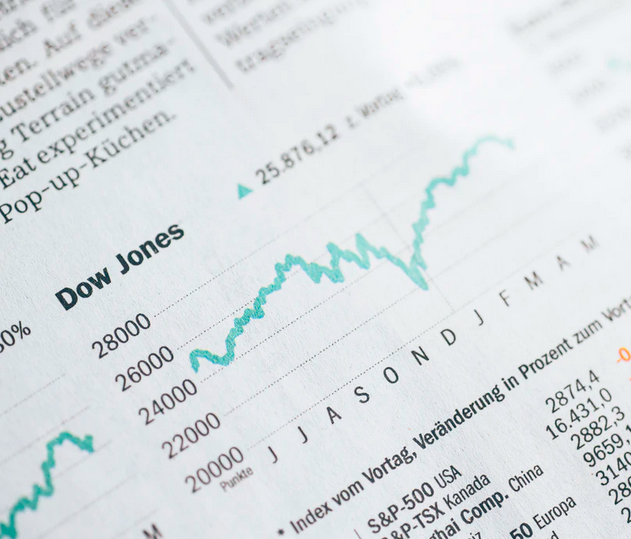Lessons from the Pandemic: Sustainable Earth
 COVID-19 is inadvertently pushing companies to pioneer sustainable solutions for the future. It’s time to look at long term benefits for the good of our planet. You may ask what a global pandemic and environmental sustainability have in common – those two are like oil and water, they just don’t mix. Actually, they go hand in hand in drawing out some of the socioeconomic determinants of health in any given region.
COVID-19 is inadvertently pushing companies to pioneer sustainable solutions for the future. It’s time to look at long term benefits for the good of our planet. You may ask what a global pandemic and environmental sustainability have in common – those two are like oil and water, they just don’t mix. Actually, they go hand in hand in drawing out some of the socioeconomic determinants of health in any given region.
We will explore just how the two correlate in an effort to understand how consumers, companies and governments can pave a fresh outlook when it comes to climate concerns.
Train Your Mindset, and Your Pockets
 The economy is undergoing a vulnerable state, and experts attribute the lack of preparedness to a collective mindset. In North America in particular, there seems to be a laissez-faire style to spending. People tend to overlook whether or not they can afford something, and deplete resources with no immediate repercussions. Current working generations are living beyond their means, and the pandemic brings that truth to light. Until we see another market crash, or perhaps a housing bubble burst, we won’t be able to resort to a more sustainable or even frugal society.
The economy is undergoing a vulnerable state, and experts attribute the lack of preparedness to a collective mindset. In North America in particular, there seems to be a laissez-faire style to spending. People tend to overlook whether or not they can afford something, and deplete resources with no immediate repercussions. Current working generations are living beyond their means, and the pandemic brings that truth to light. Until we see another market crash, or perhaps a housing bubble burst, we won’t be able to resort to a more sustainable or even frugal society.
It’s no surprise that we’ve seen a steady decline in pollution once factories, businesses and manufacturing plants were forced to temporarily shut down. Some consider this time period as a reset to intentionally rebuild the world in a more sustainable fashion: A reset for our society, economy, planet and human interaction. Emergency preparedness and contingency planning has always been a key aspect of any successful governing model, but now unlike ever before, it is time to go over the details with a fine toothed comb.
Humanity needs to enter the post-corona virus era, not looking back to the way things were but pointed towards where we need to go. – John Erik Meyer, President of the “Canadians for a Sustainable Society” NGO
As governments assess medical supplies, food, oxygen equipment, and vital resources, they reflect on how the pandemic is gearing us up for a response to climate change. The pace at which countries can adapt to the ever-changing nature of the virus is a definitive measure of preparedness. The threat of this pandemic can be buffered in areas that are better equipped in dealing with such crises – but the ripple effect of COVID-19 will be seen among numerous sectors for years to come.
We Reap What we Sow
 The most obvious starting point is to resort to renewable energy in the form of wind or solar power as opposed to fossil fuels. Another suggestion proposed by Germany-based reporter Ajit Niranjan, is to limit our consumption of beef and go plant-based. This would preserve our farmland, rainforests, and the resources needed to raise the cattle for meat. These ideas are not new to us. In fact, they’ve been discussed countless times by activists. For years we have turned a blind eye to environmental issues, but at this point we are left with nothing but to face it head on.
The most obvious starting point is to resort to renewable energy in the form of wind or solar power as opposed to fossil fuels. Another suggestion proposed by Germany-based reporter Ajit Niranjan, is to limit our consumption of beef and go plant-based. This would preserve our farmland, rainforests, and the resources needed to raise the cattle for meat. These ideas are not new to us. In fact, they’ve been discussed countless times by activists. For years we have turned a blind eye to environmental issues, but at this point we are left with nothing but to face it head on.
In a case study conducted by McKinsey & Company, pandemics and climate change have many common characteristics. They both have socioeconomic implications that call for a shift in the framework by which policies operate. Simply put, in order to build resiliency, we must adopt a proactive rather than a reactive approach. We also know that the more vulnerable suffer disproportionately in times of crisis. This crisis will hopefully force governments to look at minimizing this inequality.
Key Takeaways:
- Proactive vs. Reactive Approach
- Economic Contingency and Resiliency Plans
- Sustainable Energy Sources by Way of Reducing Carbon Emissions
Climate targets have been re-imagined as COVID-19 unfolds. The level of resiliency we muster in the face of adversity will determine the likelihood of sustaining future generations.
As humans retreat, factories are devoid of workers and cities are empty of their patrons. The environment flourishes. When we withdraw, nature quickly takes over. An important lesson is to be learned here; one that has been on the radar for many decades – mindfulness toward the planet, land use, and its precious resources.
